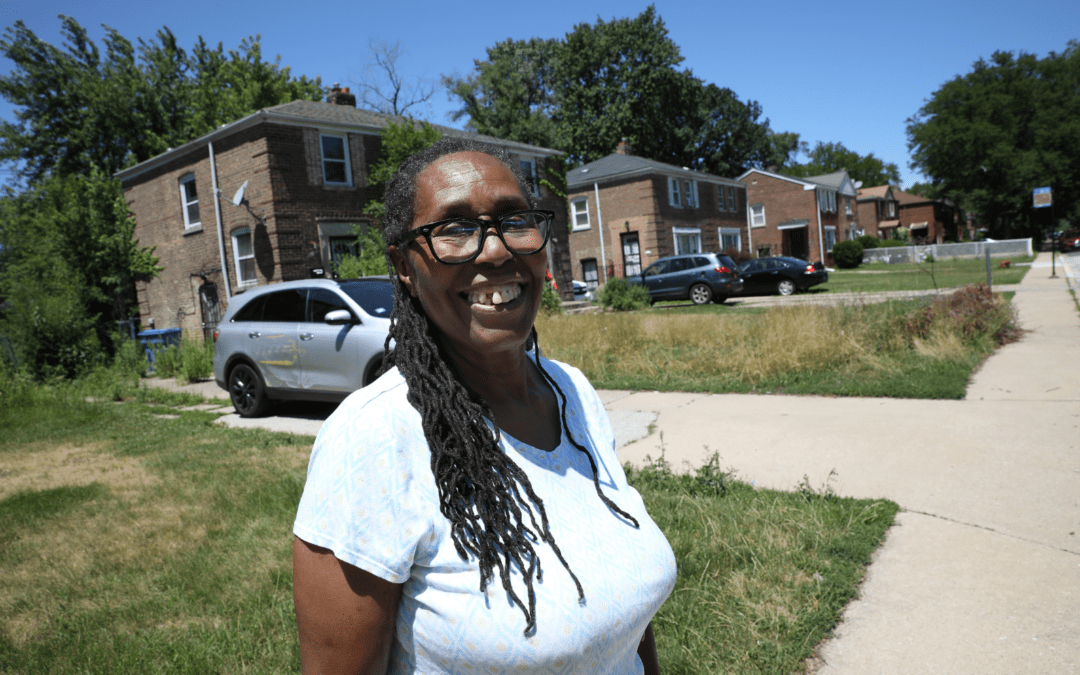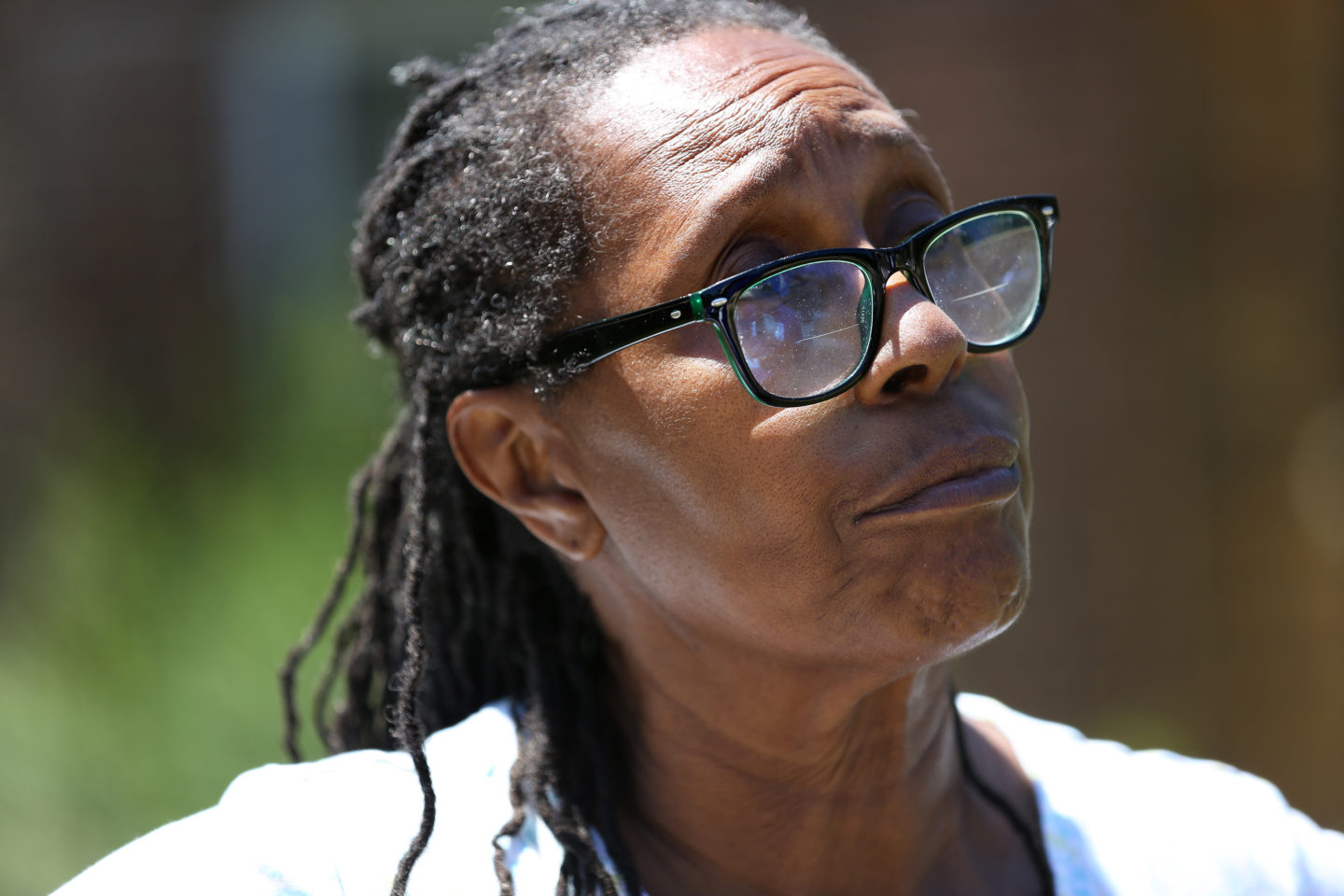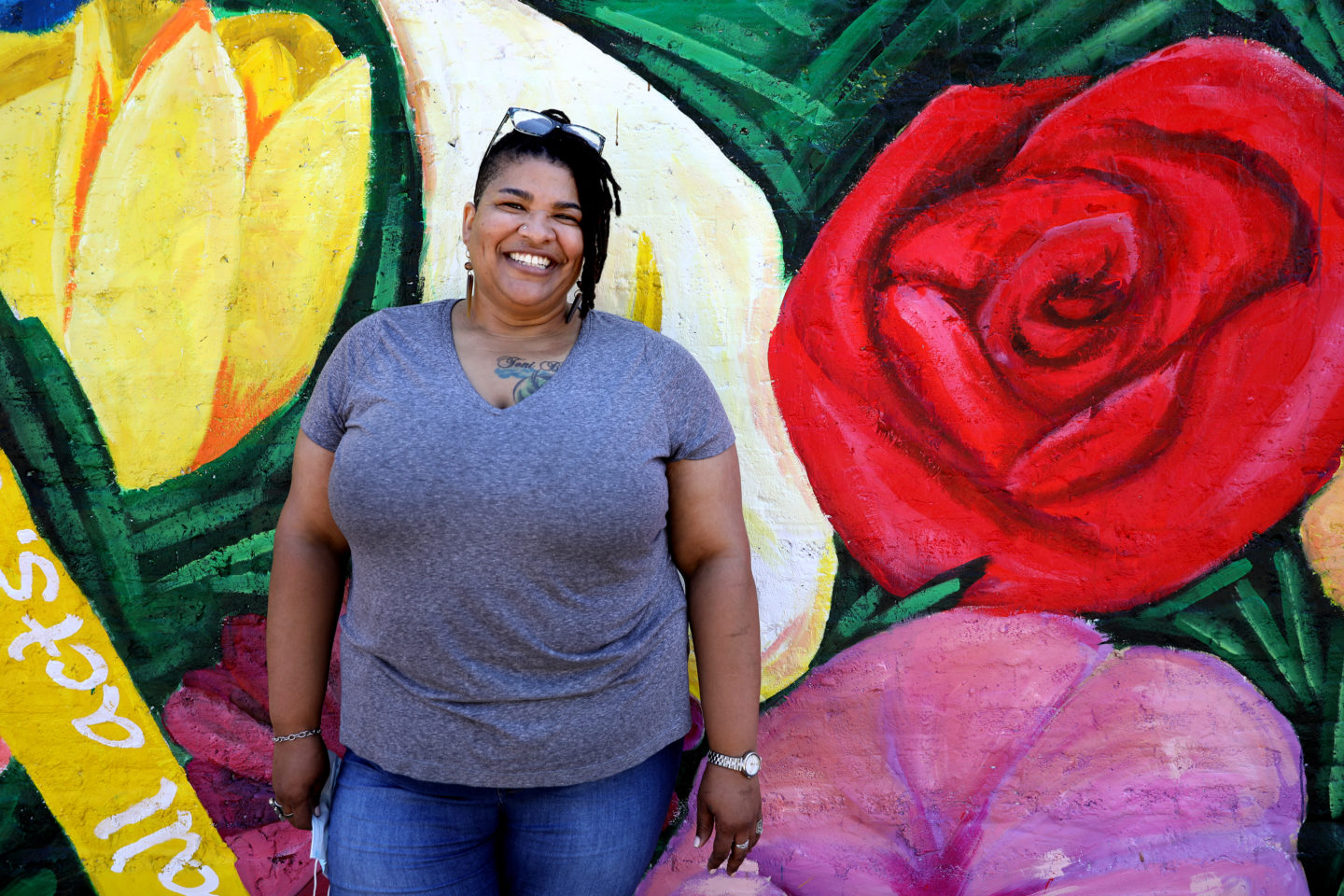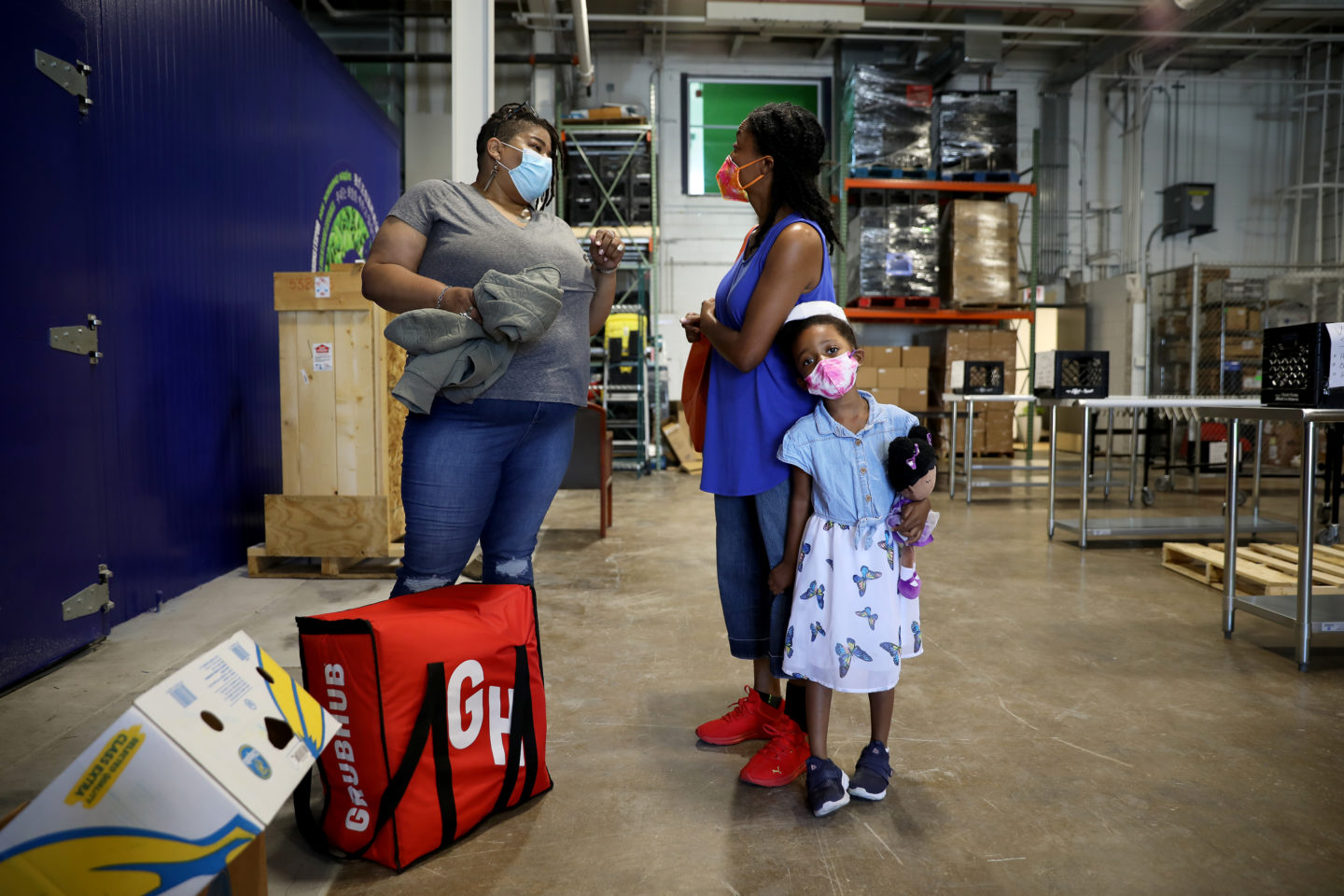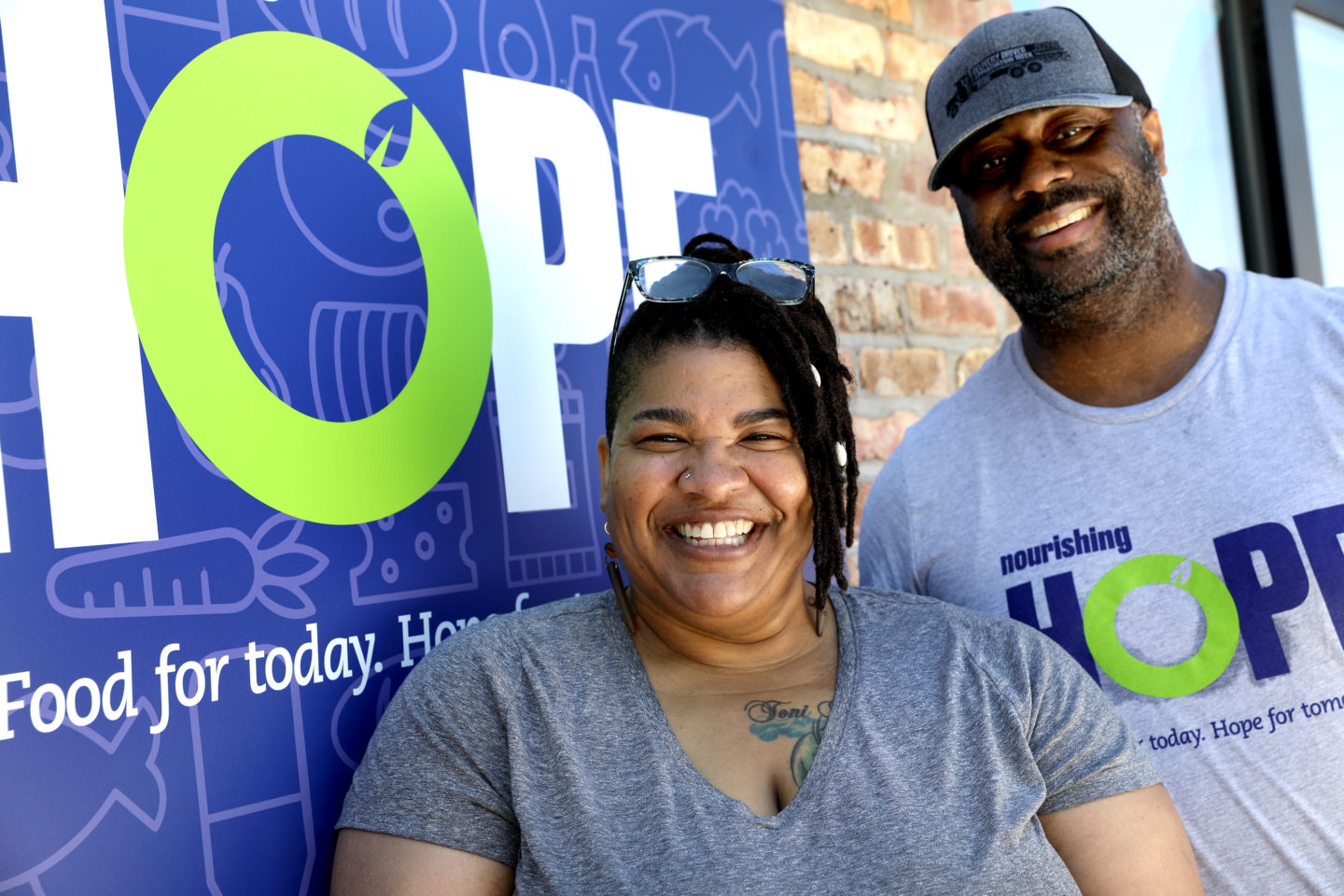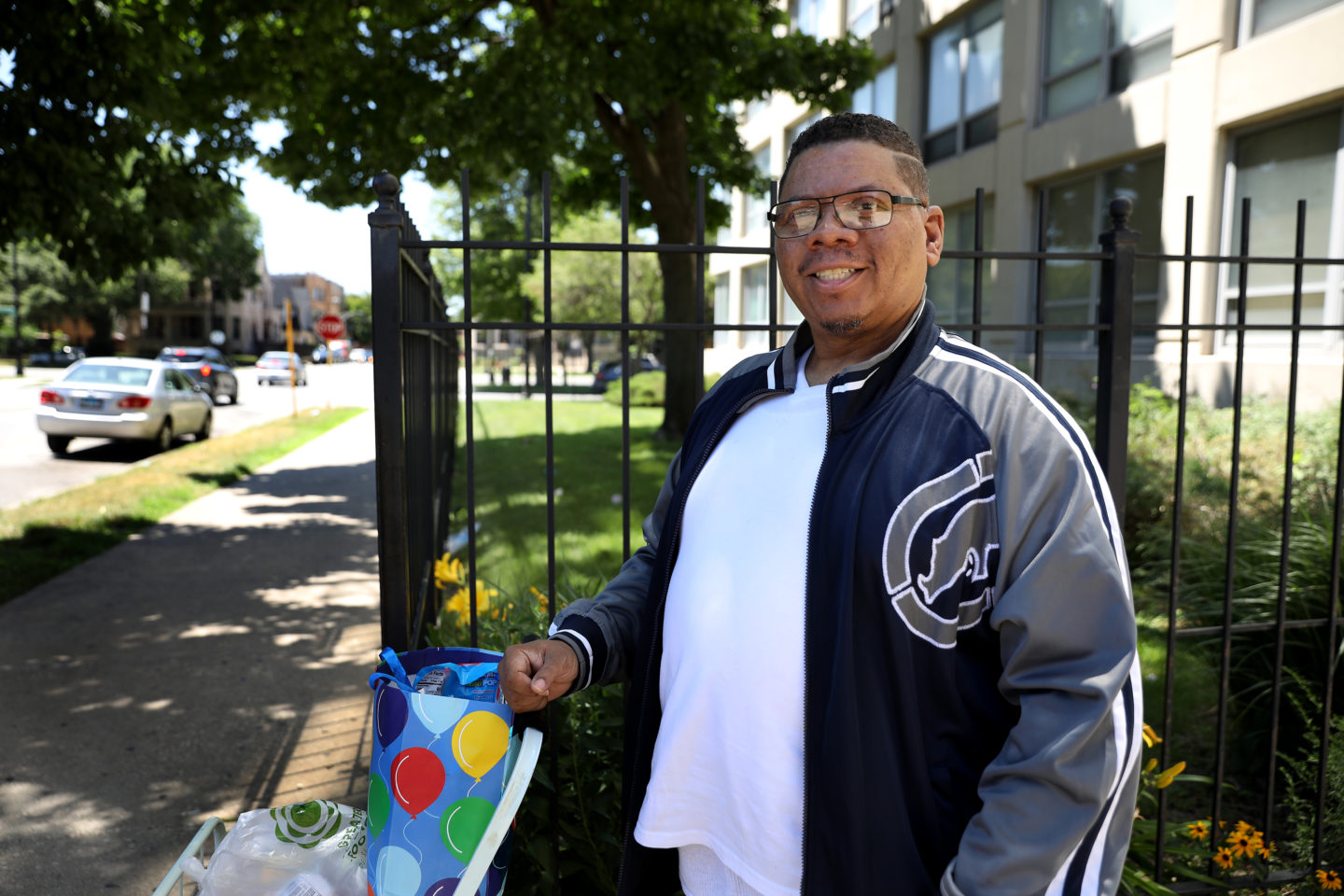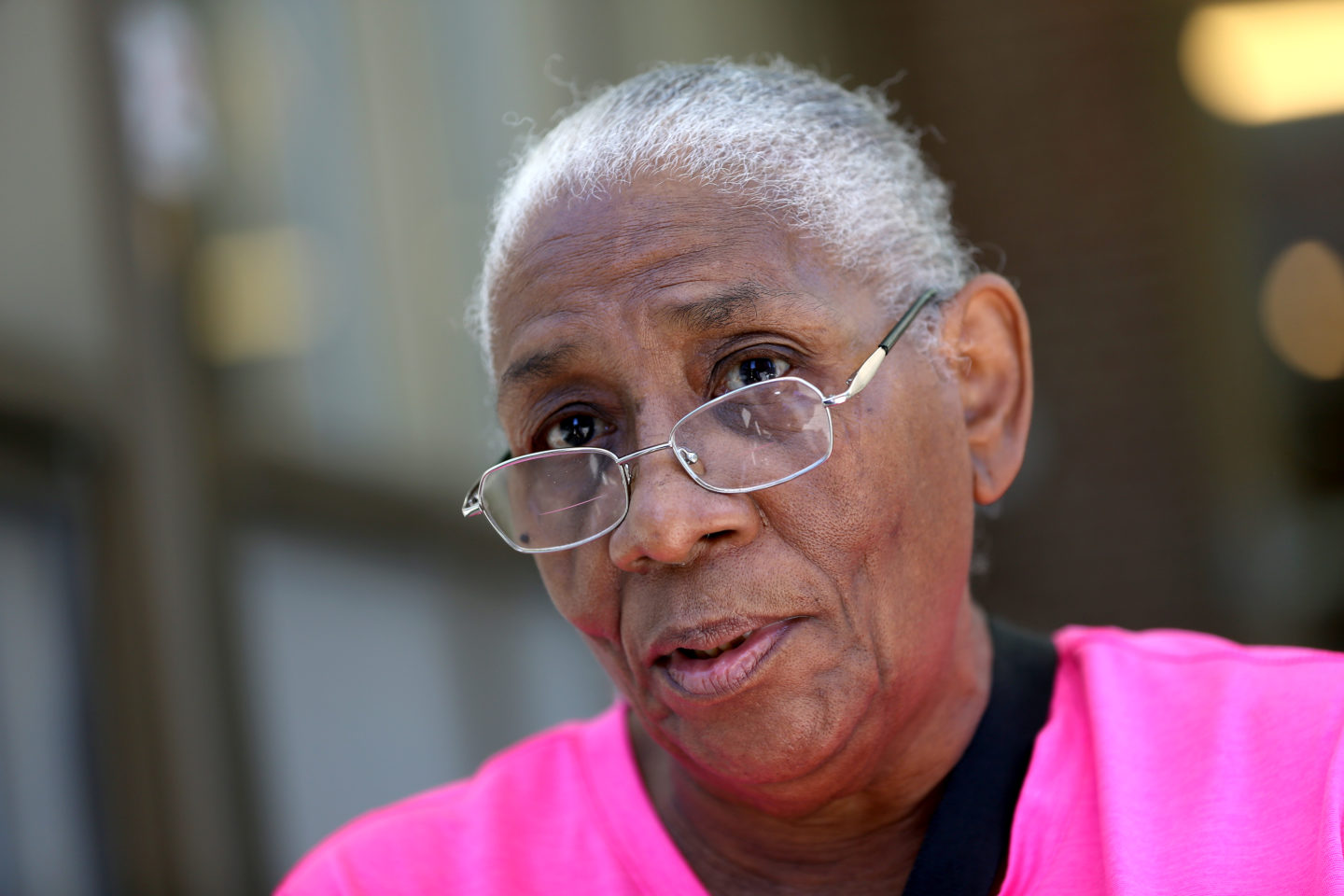(All photos by Nancy Stone for Nourishing Hope.)
Gwen McGee-Boyd is known for both her generosity and her pound cakes on her block in Jeffrey Manor on Chicago’s Far South Side, a leafy street lined with brick bungalows and duplexes.
She’s lived here for most of her life. Her father was a long-haul driver for the postal service; her mother a nurse’s aide at the nearby hospital. Jeffrey Manor is part of South Deering, once a bustling manufacturing community before the steel mills were shut down years ago. Today, more than half of South Deering residents live in households considered at risk of food insecurity, according to a Greater Chicago Food Depository analysis of Census data.
Though Jeffrey Manor has seen better days, McGee-Boyd said, its residents still look out for each other.
“Everybody on this block knows that I cook,” said McGee-Boyd, 65, a retired sewing and quilting instructor. “If you need something, knock on that door and I’ll feed you.”
On a clear and sunny early July morning, McGee-Boyd stood in the front yard of the house her family has owned for 52 years when a Nourishing Hope home delivery driver pulled up. Since 1989, Nourishing Hope, formerly known as Lakeview Pantry, has provided home delivery of groceries for older adults and people with disabilities on Chicago’s North Side.
This year, it expanded the program to the city’s South and West Sides, too, as part of a larger strategic vision to serve more people throughout the city.
McGee-Boyd lives with and takes care of her 82-year-old mother. Later, she said, they would go through the boxes of fresh produce, dairy, meat and other groceries. Whatever they don’t need, they’ll share with her neighbors.
“It doesn’t matter where you live, we are all neighbors,” she said. “When you give good, good comes back.”
That philosophy is at the very core of Nourishing Hope’s home delivery program, which relies heavily on volunteers. The longtime program on Chicago’s North Side roughly doubled during the pandemic to serve about 800 households a month.
The fledgling program on the South and West Sides, launched in March, serves about 200 people currently and will be expanded throughout the year as the volunteer support continues to grow.
Natia Barnett, Nourishing Hope’s program expansion manager, is overseeing the growth of services to the South and West Sides.
“If we can be part of the solution, if we can figure out how to assist people who have very little options, I’m down with it,” Barnett said. “I’m down with it.”
‘This is my purpose’
It was early in the pandemic — and after the police murder of George Floyd — when Barnett’s passion for helping others turned into her life’s purpose.
Though the civil unrest following Floyd’s murder was largely peaceful, there was significant vandalism and looting that further limited food access on the South Side. Barnett saw the need firsthand in her South Shore community, particularly among older adults who already had limited access to healthy food.
Barnett decided to do something about it: She started her own nonprofit called Village Minds to deliver groceries to older adults.
“I was like, here’s what we’re going to do — we’re going to help people,” said Barnett, 44, who was working at a tree company at the time. “We’re going to help anyone who needs help.”
Barnett comes from a proud family tradition of helping others. Her great-grandmother, Ardessa Cannon, was known in the Bronzeville community for feeding people with food that she grew in her garden and prepared in her kitchen. No one was ever turned away.
“I realized this is my purpose,” she said. “And I didn’t realize it until I started doing it.”
In February of this year, she joined Nourishing Hope as the organization’s first program expansion manager to continue scaling up the work that she had started with Village Minds.
On a recent Saturday morning at Nourishing Hope’s headquarters, Barnett helped volunteers load the boxes of food into their cars before they set off for delivery. The Whitney M. Young Magnet High school connection was strong among this particular set of volunteers. Barnett, a proud alum, had recruited some of her good friends back when she was running Village Minds.
They got hooked on helping others.
“I fell in love with it,” said Quiyann Laseter, 45, a longtime high school friend of Barnett’s. “Seniors have given so much to us. It’s unfortunate that once people get to a certain age, we kind of forget about them. They need all the help that we can give them.”
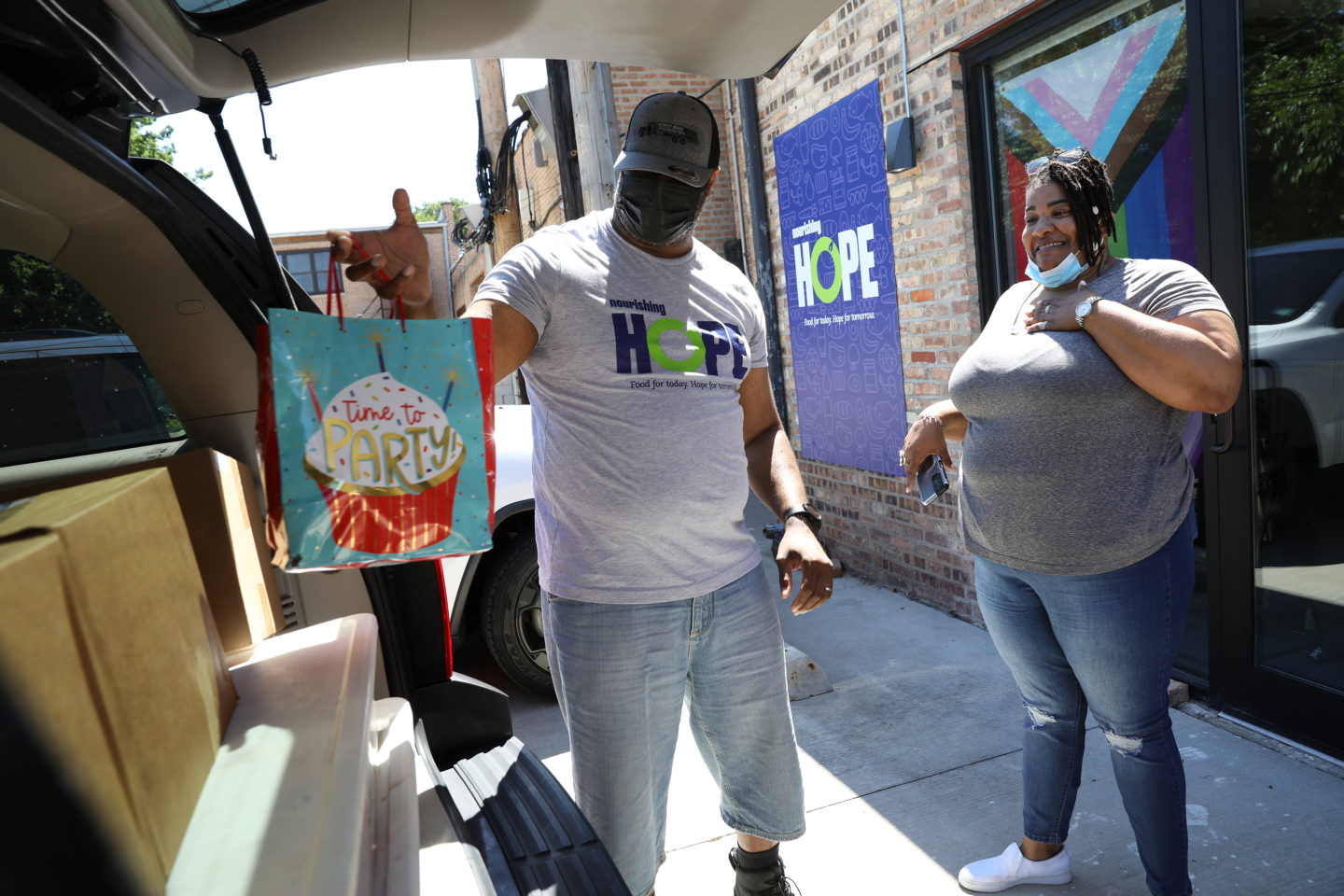
Quiyann Laseter loads his car with boxes of food, including a birthday bag, for his home delivery route.
Laseter, who grew up in Woodlawn, said he was all too familiar with the scarcity of resources and inequitable access to healthy food on the city’s South Side. He learned the importance of giving back to the community from his parents. His mom was a block club president who also served on the PTA; his dad was a youth basketball referee.
Now living in suburban Oswego, he’s setting the example for his own children, ages 1, 7 and 10. He regularly drives into the city to volunteer for the home delivery program.
“I’m passionate about it,” Laseter said. “I know this program can benefit a lot of people.”
Jamilah Bowden, another Whitney Young Dolphin, had a helper for her home delivery shift. Her 5-year-old daughter, Joya, followed her as she loaded boxes of food into her car. The girl carried a doll that she had named Little Joya.

Jamilah Bowden and her daughter, Joya, smile for the camera before their home delivery shift for Nourishing Hope.
Bowden, an educational consultant and mental health therapist, volunteers about once a month — both to help those in need and to teach her daughter the importance of service. And Joya’s presence never fails to bring smiles to those receiving the food.
“It’s what I want for her — that we’re being of service in our community,” the mother said. “It’s really powerful to me that she knows she can make someone’s day just by being there.”
‘Good comes back’
In Bronzeville, Andre Wesley was soon turning 59. He beamed as he received a “birthday bag” — a small bag with cupcake fixings and candles — as part of his home delivery order.
Wesley has been unable to work in recent years because of various health issues. Affording healthy food has been a challenge, he said. Living alone during the isolation of the pandemic was also hard on him.
“This food has really helped me given the cost of living,” Wesley said. “I’m very thankful. It’s motivated me to get more active.”
Now recovered from a knee injury, Wesley is hoping to find part-time bartending work and possibly even volunteer for Nourishing Hope. That was a consistent theme of the day — those who are receiving help are also trying to help others.
When you give good, good comes back.
At a South Loop high-rise apartment building for older adults, Laura Doss wheeled a cart outside to receive her groceries from Nourishing Hope.
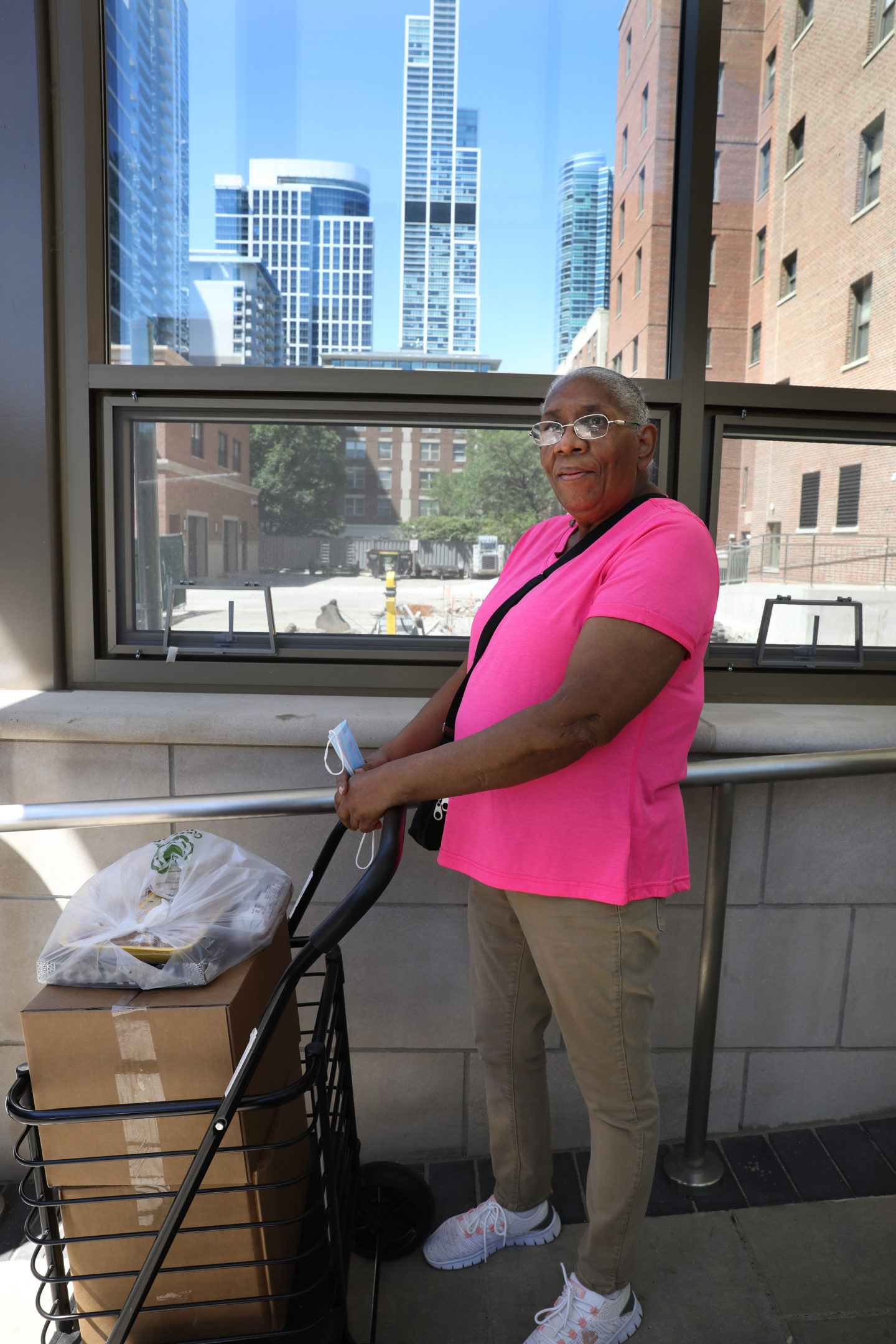
Laura Doss was homeless for 16 years; now she’s an activist on behalf of those experiencing homelessness.
Beginning in 1984, Doss had been homeless for 16 years. Deep in the throes of drug and alcohol addiction, she slept on an endless rotation of couches and floors. She lost everything. She was lost.
After being hospitalized for a serious illness, Doss began to turn her life around.
“Everyone has to believe in something,” said Doss, 73. “I believe in a higher power.”
Now sober for 20 years, Doss is an activist for people experiencing homelessness. She volunteers for various housing programs in Chicago. She was also a participant in Speak Up, a program that trains people who were formerly homeless in public speaking to become more effective advocates.
She’ll talk to anyone, often approaching strangers who look like they might need some help.
First, she listens. And then she begins to share her own story.
“Drugs and alcohol are what started my journey,” Doss said. “Now, I’m on another journey.”
